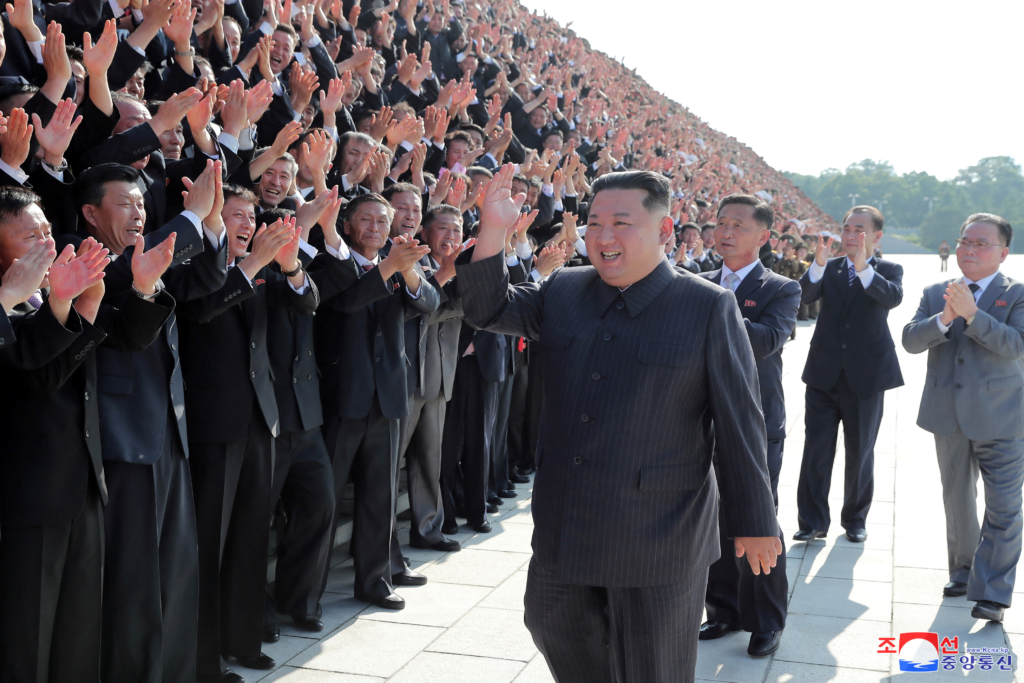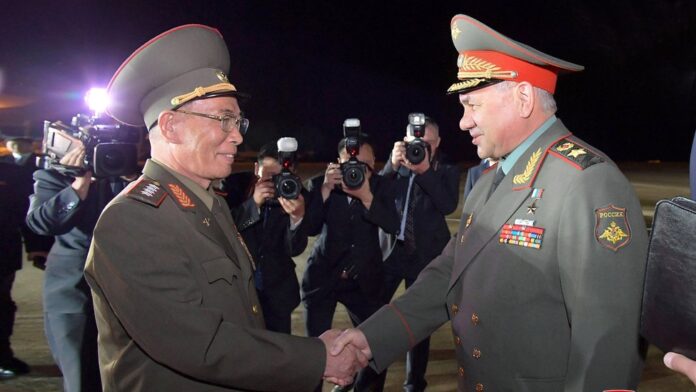As tensions rise in the international arena, an intriguing development has caught the world’s attention – a Russian delegation, led by Defence Minister Sergei Shoigu, has made its way to North Korea for the first time since the reclusive nation sealed its borders due to the pandemic. What’s more, they will be joined by a Chinese delegation, further highlighting the gravity of the event.
The purpose of their visit? To partake in Pyongyang’s celebrations commemorating the 70th anniversary of the end of the Korean War. These celebrations, which are known for their grand military parades, hold particular significance for North Korea. With the participation of high-ranking officials from two of its closest allies – China and Russia – questions have arisen about potential shifts in North Korea’s border policies.
Since early 2020, North Korea had shut itself off from the rest of the world, including its main economic and political partners, Russia and China. This unprecedented isolation has led to a series of challenges, including food shortages and difficulties in obtaining essential goods like medicine. Strict international sanctions, imposed due to North Korea’s nuclear program, have only compounded their struggles.
However, the inclusion of Russian and Chinese envoys in this year’s “Victory Day” parade has sparked speculations of possible changes in Pyongyang’s approach to the pandemic. State media images showing North Koreans without masks have added to the intrigue surrounding this issue. Could this be a sign that the reclusive nation is considering loosening its COVID restrictions?

Russia’s and China’s historical connections with North Korea date back to the Korean War in the early 1950s, during which both nations supported the North against the South. Despite the collapse of the USSR in 1991, Russia has remained a natural ally for North Korea due to their shared animosity towards the United States. Recent allegations from Washington, accusing North Korea of providing military aid to Russia during the Ukraine war, have further complicated geopolitical tensions.
Against this backdrop, Defence Minister Sergei Shoigu’s visit takes on added significance, particularly given the ongoing geopolitical disputes between the US and Russia over Ukraine, and the strained relations between China and the US concerning Taiwan. It remains to be seen how this diplomatic foray will impact the broader regional dynamics.
Meanwhile, the United States is also attempting to engage with North Korea after a US soldier, Travis King, defected to North Korea while on duty at the Joint Security Area (JSA) in the Demilitarised Zone (DMZ) that separates North and South Korea. The incident has led to a dialogue between the United Nations Command and North Korea, but specific details have not been disclosed.
As the world watches the rare convergence of Russian and Chinese delegations in North Korea, many are left wondering whether this historic event will pave the way for new diplomatic channels or act as a mere interlude in North Korea’s self-imposed isolation. The 70th-anniversary celebration of the Korean War’s end has indeed become an enigmatic stage for global observers, eagerly anticipating the next moves in this geopolitical theater.





